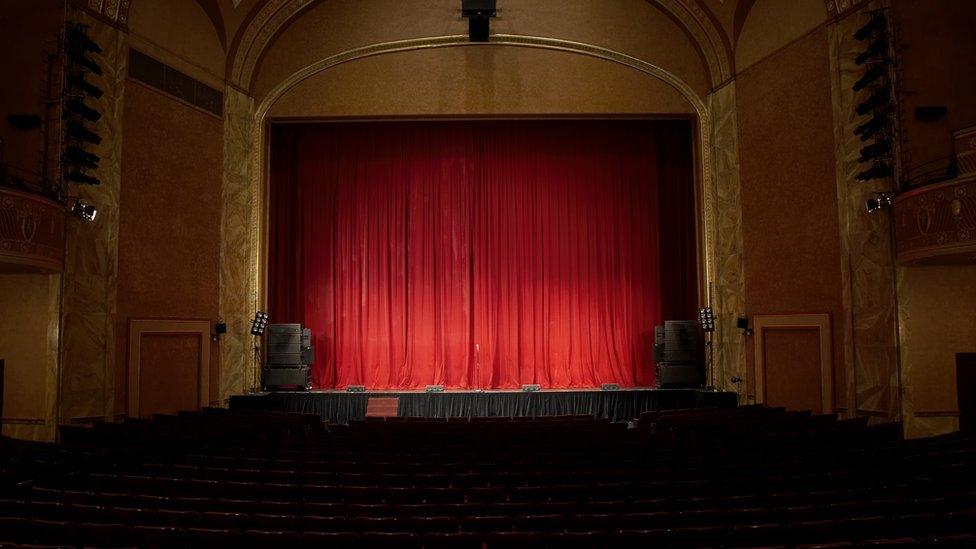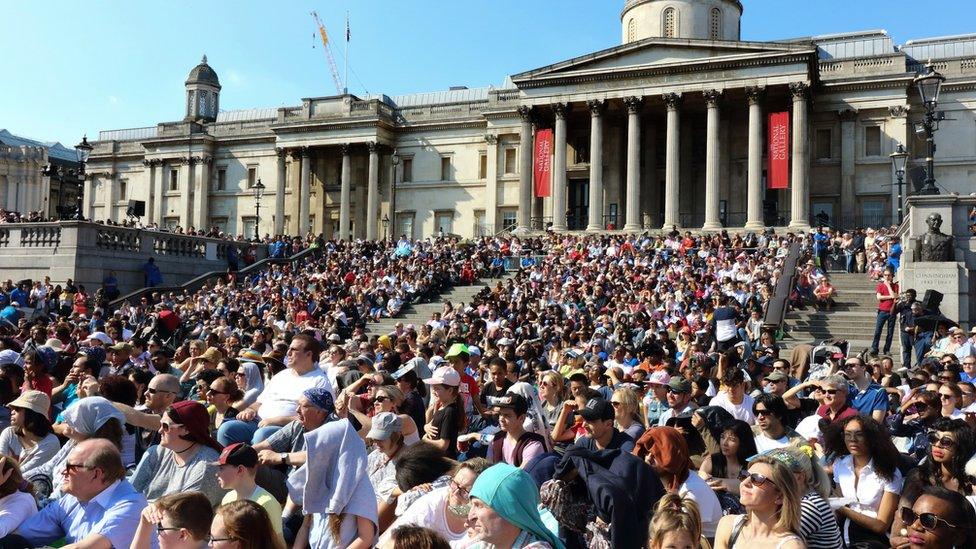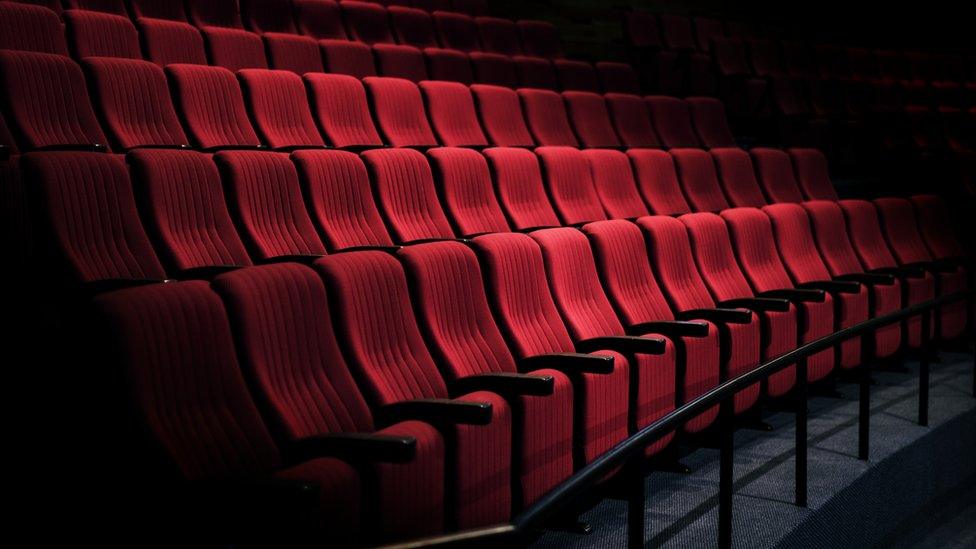Coronavirus: Arts fund closes temporarily due to high demand
- Published

The fund was set up on 27 April
A fund for artists and performers financially affected by the coronavirus pandemic has had to close temporarily due to a high level of demand.
The £500,000 Artists Emergency Fund was opened by the Arts Council and Department for Communities on 27 April.
It provides grants of up to £5,000 for people to develop work while venues, theatres and galleries are shut.
The scheme has received more than 300 applications for about £1.2m of total funding in just two weeks.
As a result, the Arts Council of Northern Ireland (ACNI) has had to temporarily close the fund to any new applicants.
In a statement it said it was already considering eligible applications and would respond to all requests within the next two-to-four weeks.
"The Arts Council continues to work with Minister Hargey to determine the level of need within the sector and we aim to offer as much support as possible to individual artists and creative practitioners at this stressful time," ACNI said.
Under the Northern Ireland Executive's plan for easing lockdown restrictions, theatres, venues and galleries are unlikely to open for a number of months.

Concert and theatre rehearsals can resume and galleries can reopen alongside museums and libraries under step three of the plan, but no date has been set for that.
Although outdoor concerts can take place on a restricted basis under step four, spectators can only begin to attend live events on a restricted basis under step five.

LOCKDOWN UPDATE: What's changing, where
THE R NUMBER: What it means and why it matters
AIR TRAVELLERS: The new quarantine rules
LOOK-UP TOOL: How many cases in your area?
GLOBAL SPREAD: Tracking the pandemic

The director of the representative body Theatre and Dance NI, Niamh Flanagan, said that with venues closed and performances cancelled, the financial need among people working in the performing arts sector was "huge".
"Artists, actors, musicians and performers are the ones that people see but we also have a whole industry behind the scenes - like stage managers, lighting directors and technical staff," she said.
"It's a sector made up of many people who work in freelance capacities so there's a whole group of people in need who are facing immediate financial hardship.
"It's hard to put an exact figure on the numbers, but it could be in the thousands.
"Stage managers and lighting designers, for example, need live performances to take place to be in work so there's a need for a hardship fund for all freelancers in the arts."
Loss of earnings
Separate research carried out by ACNI estimated that individual artists would lose an average of more than £1,200 a month in income as a result of the coronavirus pandemic.
"Respondents relied on their income as artists to support themselves and dependants with some already seeking financial help from family and friends to make ends meet," ACNI said.
Meanwhile, 108 arts organisations estimated they could collectively lose up to £4m in total between March and May.
Large and medium size venues like theatres and arts centres were likely to be hardest hit by the loss of box-office income.
The renowned theatre producer Sir Cameron Mackintosh has already warned theatres in the UK are unlikely to be able to stage musicals until early next year.
- Published24 March 2020

- Published7 May 2020
